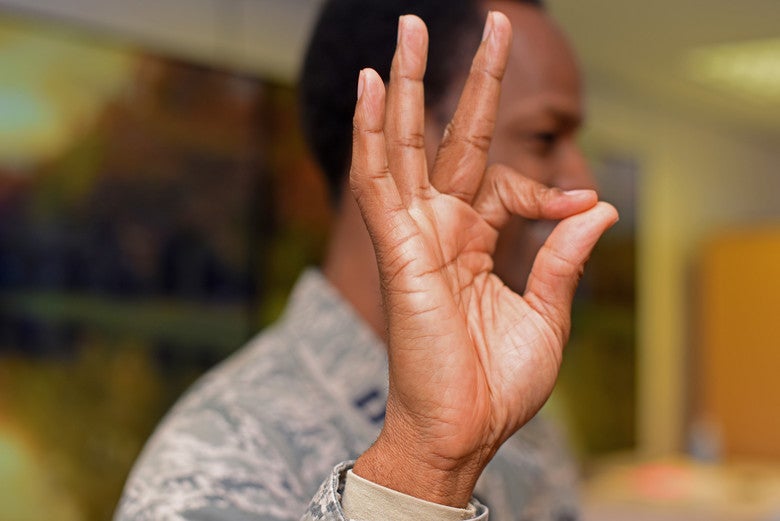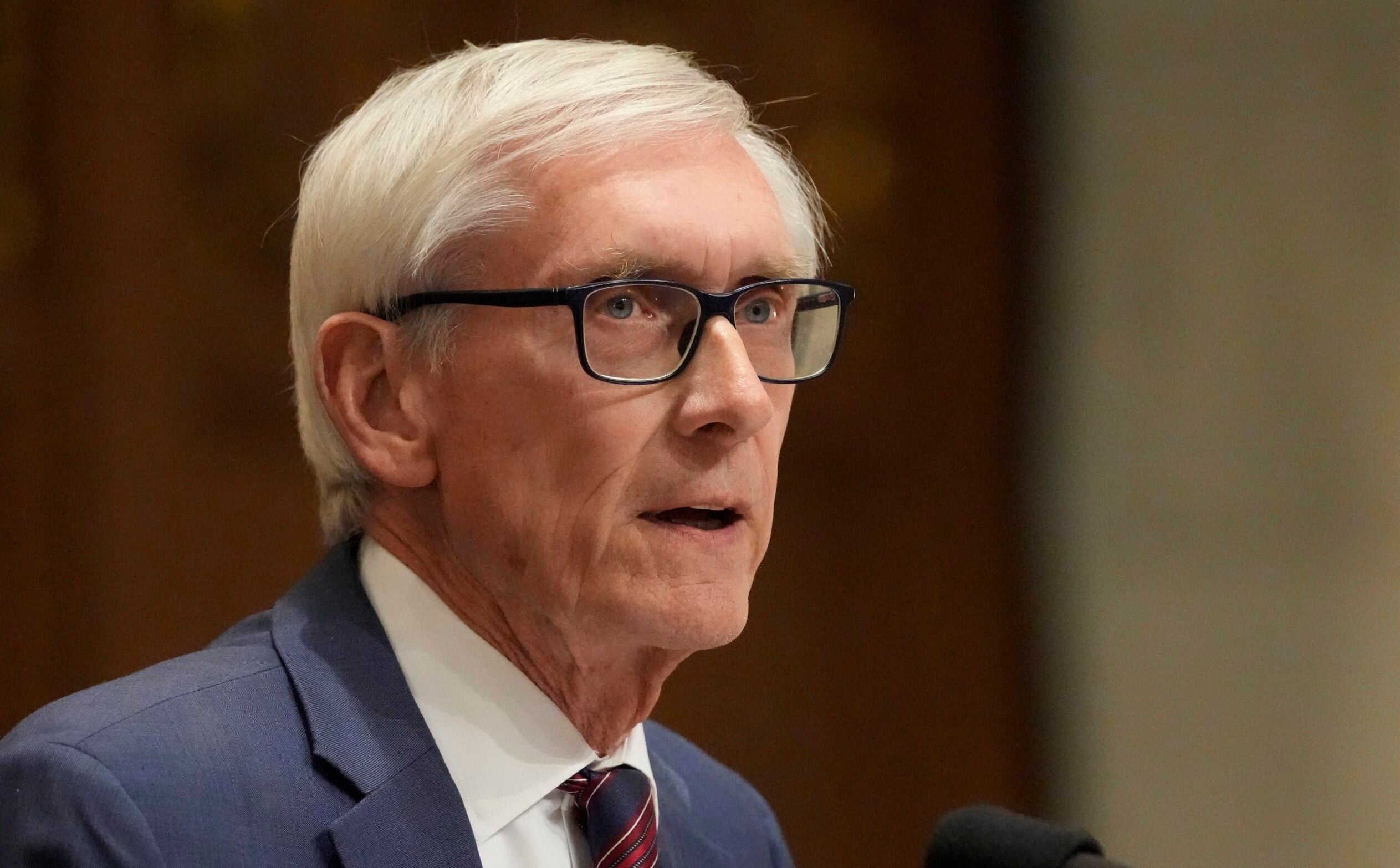Gov. Tony Evers on Wednesday signed a new state law aimed at boosting the availability of sign language interpreters in Wisconsin.
The law, passed by the state Legislature with bipartisan support, allows the state Department of Health Services or a department-approved entity to administer the licensure exam for sign language interpreters, which isn’t currently offered in Wisconsin.
Supporters of the measure say interpreters have been driving to Michigan, the nearest state that offers the exam, to get their credentials.
News with a little more humanity
WPR’s “Wisconsin Today” newsletter keeps you connected to the state you love without feeling overwhelmed. No paywall. No agenda. No corporate filter.
Speaking at a bill signing ceremony in Greenfield broadcast by WisconsinEye, Evers said the new law is aimed at reducing barriers for qualified interpreters.
“This is a critical first step in ensuring deaf and hard of hearing folks across the state have reliable and experienced interpreters, no matter the situation or the circumstance,” Evers said.
The new law also creates a two-tier system for sign language licensure in the state, which Evers said will help ensure that some signers are prepared to interpret in specialized situations, like in emergency rooms or at legal proceedings.
“We’re going to make sure that when someone needs an interpreter with highly technical or specialized knowledge, they can be assured that the interpreters are experienced and qualified,” the governor said. “And that means we’re also making sure that our interpreters are not put in the position of having to interpret during a scenario for which they feel unqualified.”
Members of the deaf community have pushed for changes to the system, saying the availability and quality of sign language interpreters in Wisconsin has been lacking.
State Rep. Jonathan Brostoff, D-Milwaukee, one of the law’s sponsors, pledged not to cut his hair until the plan passed the Legislature.
“It will better protect the deaf community, it will help sign language interpreters get back to work and it will make Wisconsin a better and more accessible place for deaf Wisconsinites now and for generations to come,” Brostoff said of the plan during an Assembly floor speech.
He also gave the speech in American Sign Language.
“It’s easy for me and for all the other hearing people here to forget how hard life can get for members of the deaf community and how basic, simple things in our lives and daily interactions — or complicated things, such a medical procedures — for other members of our society can become much more complicated due to a lack of proper access,” Brostoff said. “Just because someone’s deaf does not mean they should face those additional barriers that we can prevent.”
The law was sponsored by a bipartisan coalition of lawmakers. Rep. Ken Skowronski, R-Franklin, spearheaded the Assembly effort with Brostoff.
“This is a very great step for us here in this state,” Skowronski said during his floor speech.
A number of advocacy groups, including Wisconsin Association of the Deaf and Disability Rights Wisconsin, support the law.
Wisconsin Public Radio, © Copyright 2026, Board of Regents of the University of Wisconsin System and Wisconsin Educational Communications Board.






